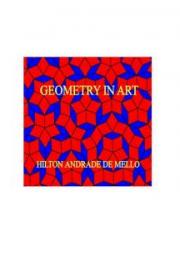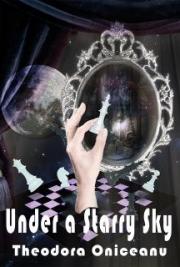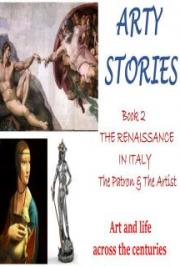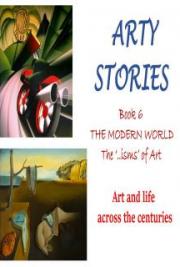THE BURNING OF BEOWULF.
Beowulf’s pyre.
The folk of the Geatmen got him then ready
A pile on the earth strong for the burning,
Behung with helmets, hero-knights’ targets,
And bright-shining burnies, as he begged they should have them;
5
Then wailing war-heroes their world-famous chieftain,
Their liegelord beloved, laid in the middle.
The funeral-flame.
Soldiers began then to make on the barrow
The largest of dead-fires: dark o’er the vapor
The smoke-cloud ascended, the sad-roaring fire,
10
Mingled with weeping (the wind-roar subsided)
Till the building of bone it had broken to pieces,
Hot in the heart. Heavy in spirit
They mood-sad lamented the men-leader’s ruin;
And mournful measures the much-grieving widow
15
* * * * * * *
* * * * * * *
* * * * * * *
* * * * * * *
* * * * * * *
20
* * * * * * *
The Weders carry out their lord’s last request.
The men of the Weders made accordingly
A hill on the height, high and extensive,
Of sea-going sailors to be seen from a distance,
And the brave one’s beacon built where the fire was,
25
In ten-days’ space, with a wall surrounded it,
As wisest of world-folk could most worthily plan it.
They placed in the barrow rings and jewels,
[107]
Rings and gems are laid in the barrow.
All such ornaments as erst in the treasure
War-mooded men had won in possession:
30
The earnings of earlmen to earth they entrusted,
The gold to the dust, where yet it remaineth
As useless to mortals as in foregoing eras.
’Round the dead-mound rode then the doughty-in-battle,
Bairns of all twelve of the chiefs of the people,
They mourn for their lord, and sing his praises.
35
More would they mourn, lament for their ruler,
Speak in measure, mention him with pleasure,
Weighed his worth, and his warlike achievements
Mightily commended, as ’tis meet one praise his
Liegelord in words and love him in spirit,
40
When forth from his body he fares to destruction.
So lamented mourning the men of the Geats,
Fond-loving vassals, the fall of their lord,
An ideal king.
Said he was kindest of kings under heaven,
Gentlest of men, most winning of manner,
45
Friendliest to folk-troops and fondest of honor.
[109]
ADDENDA.
Several discrepancies and other oversights have been noticed in
the H.-So. glossary. Of these a good part were avoided by Harrison
and Sharp, the American editors of Beowulf, in their last edition,
1888. The rest will, I hope, be noticed in their fourth edition. As,
however, this book may fall into the hands of some who have no copy
of the American edition, it seems best to notice all the principal
oversights of the German editors.
From hám (194).—Notes and glossary conflict; the latter not
having been altered to suit the conclusions accepted in the former.
Þær gelýfan sceal dryhtnes dóme (440).—Under ‘dóm’ H. says
‘the might of the Lord’; while under ‘gelýfan’ he says ‘the judgment of
the Lord.’
Eal bencþelu (486).—Under ‘benc-þelu’ H. says nom. plu. ; while
under ‘eal’ he says nom. sing.
Heatho-ræmas (519).—Under ‘ætberan’ H. translates ‘to the
Heathoremes’; while under ‘Heatho-ræmas’ he says ‘Heathoræmas
reaches Breca in the swimming-match with Beowulf.’ Harrison and
Sharp (3d edition, 1888) avoid the discrepancy.
Fáh féond-scaða (554).—Under ‘féond-scaða’ H. says ‘a
gleaming sea-monster’; under ‘fáh’ he says ‘hostile.’
Onfeng hraðe inwit-þancum (749).—Under ‘onfón’ H. says ‘he
received the maliciously-disposed one’; under ‘inwit-þanc’ he says ‘he
grasped,’ etc.
Níð-wundor séon (1366).—Under ‘níð-wundor’ H. calls this word
itself nom. sing. ; under ‘séon’ he translates it as accus. sing.,
understanding ‘man’ as subject of ‘séon.’ H. and S. (3d edition) make
the correction.
Forgeaf hilde-bille (1521).—H., under the second word, calls it
instr. dat.; while under ‘forgifan’ he makes it the dat. of indir. obj. H.
and S. (3d edition) make the change.
Brád and brún-ecg (1547).—Under ‘brád’ H. says ‘das breite
Hüftmesser mit bronzener Klinge’; under ‘brún-ecg’ he says ‘ihr
breites Hüftmesser mit blitzender Klinge.’
[110]
Yðelíce (1557).—Under this word H. makes it modify ‘ástód.’ If
this be right, the punctuation of the fifth edition is wrong. See H. and
S., appendix.
Sélran gesóhte (1840).—Under ‘sél’ and ‘gesécan’ H. calls these
two words accus. plu.; but this is clearly an error, as both are nom.
plu., pred. nom. H. and S. correct under ‘sél.’
Wið sylfne (1978).—Under ‘wið’ and ‘gesittan’ H. says ‘wið =
near, by’; under ‘self’ he says ‘opposite.’
þéow (2225) is omitted from the glossary.
For duguðum (2502).—Under ‘duguð’ H. translates this phrase,
‘in Tüchtigkeit’; under ‘for,’ by ‘vor der edlen Kriegerschaar.’
þær (2574).—Under ‘wealdan’ H. translates þær by ‘wo’; under
‘mótan,’ by ‘da.’ H. and S. suggest ‘if’ in both passages.
Wunde (2726).—Under ‘wund’ H. says ‘dative,’ and under ‘wæl-
bléate’ he says ‘accus.’ It is without doubt accus., parallel with
‘benne.’
Strengum gebæded (3118).—Under ‘strengo’ H. says ‘Strengum’
= mit Macht; under ‘gebæded’ he translates ‘von den Sehnen.’ H. and
S. correct this discrepancy by rejecting the second reading.
Bronda be láfe (3162).—A recent emendation. The fourth edition
had ‘bronda betost.’ In the fifth edition the editor neglects to change
the glossary to suit the new emendation. See ‘bewyrcan.’







